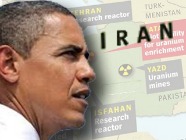
There is a story in the Talmud of a man who was walking along a road, and came upon an elderly man planting a carob tree. Seeing how old the gardener was, he asked him, "How long does this tree take to bear fruit?" The old man said, "70 years." The first man asked the gardener if he expected to live that long, and the man replied, "What I am planting, I am planting for my children, just as others planted for me."
Click here for more
 Americans for Peace Now (APN) urges American Jewish organizations to join it and its Israeli sister organization, Israel's Peace Now movement, in condemning Israel's Defense Minister Moshe Yaalon's offensive comments, lambasting Secretary of State John Kerry for his efforts to broker peace for Israel.
Americans for Peace Now (APN) urges American Jewish organizations to join it and its Israeli sister organization, Israel's Peace Now movement, in condemning Israel's Defense Minister Moshe Yaalon's offensive comments, lambasting Secretary of State John Kerry for his efforts to broker peace for Israel.



